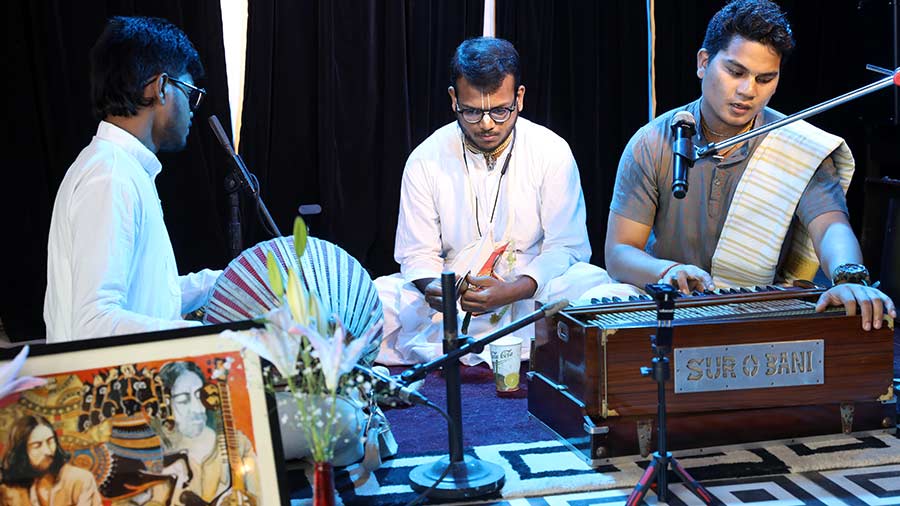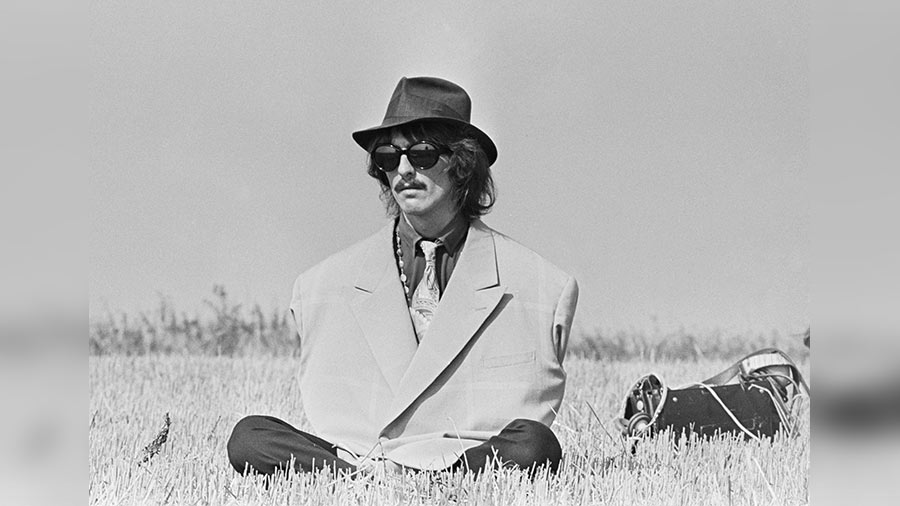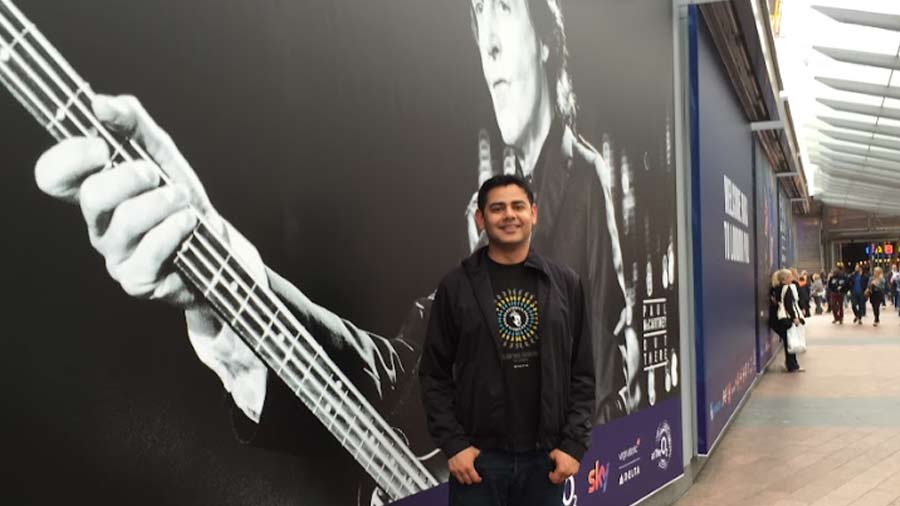The Beatles, comprising John Lennon, Paul McCartney, George Harrison and Ringo Starr, are one of the most significant bands of all time. Their enormous influence, spanning the globe, has left its indelible mark on India as well. This has been especially true for Kolkata, where George Harrison or “the quiet Beatle” visited in the early 1980s.
Almost three decades later, singer-songwriter Jaimin Rajani, on an unassuming day in 2015, while watching The Concert for Bangladesh, was struck by Harrison’s skill and the unfaltering truth in his music. So powerful was the effect of watching the artiste perform that he decided upon becoming a songwriter — something that he says, “lay dormant in him for a long time.”
To pay tribute to Harrison on his 80th birth anniversary, Rajani, with the help of his friends, organised a show to remember the artist through book readings, songs, his favourite ragas and stories, on February 25, at Skinny Mo’s Jazz Club.
Tales of meeting the man
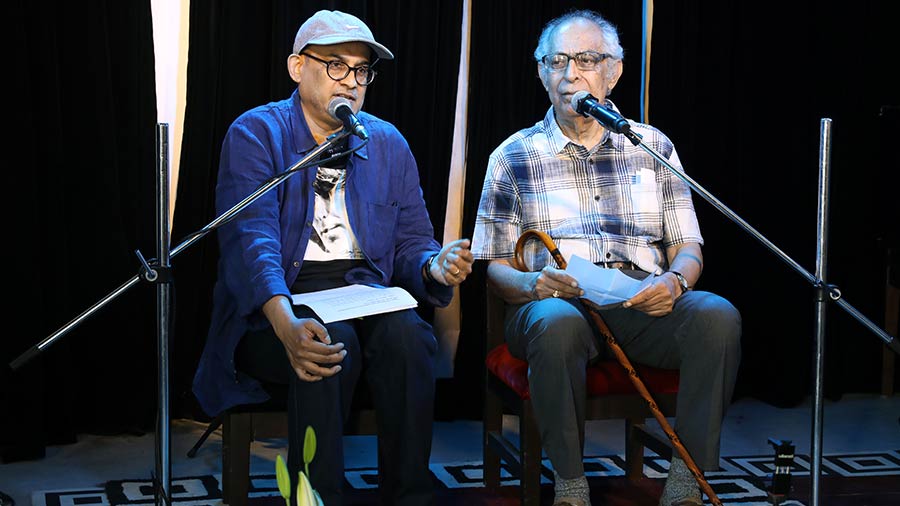
Shantanu Datta (left) and Ian Zachariah told stories of their encounters with Harrison
Shantanu Datta, the author of Calling Elvis, had the privilege of meeting Harrison for “thirty-three and one-third seconds,” when the musician arrived in Kolkata to watch Pandit Ravi Shankar and Ali Akbar Khan perform at Netaji Indoor Stadium. A die-hard fan of Harrison, that singular moment is one of the most significant in Datta’s life. Reading out from his book, Datta regaled the audience with the story of his short meeting with Harrison and how he managed to acquire an autograph from the maestro himself.
For Ian Zachariah, who was a journalist with The Statesman, the meeting with Harrison was set up. He had the opportunity to interview Harrison along with several other journalists who were invited to speak with him. Reading out from the story that he had filed for The Statesman, Zachariah narrated his experience of meeting Harrison at Jahaj Bari in Elgin Road and the views that Harrison expressed on contemporary music, the quality of which, he felt, had gone down in the mid-’70s. “Disco is for people with no brains, punk is for people with no brains and no spirit,” Harrison had said in the interview.
The ISKCON connect
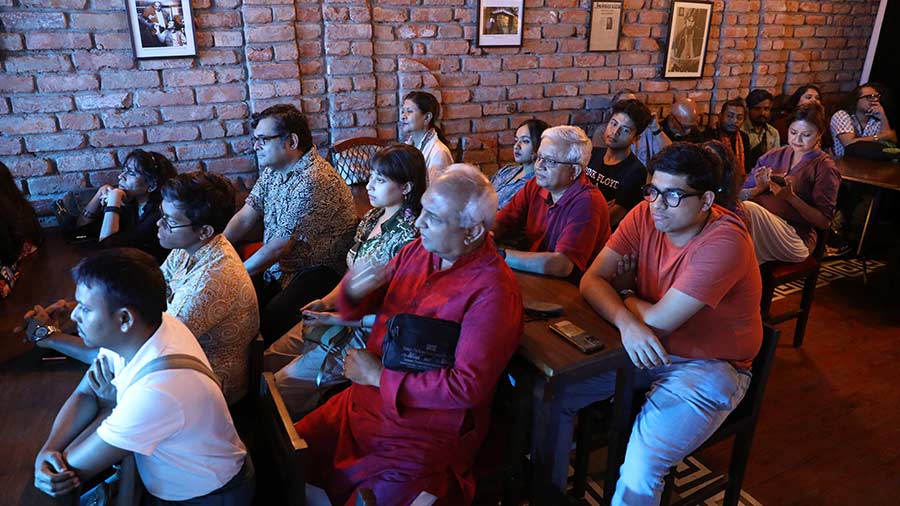
The rapt audience at Skinny Mo’s Jazz Club
Harrison’s predilection for the Hare Krishna Movement and the International Society for Krishna Consciousness (ISKCON), is well known. The Radha Krsna Temple, a 1971 album of Hindu devotional songs recorded by ISKCON, had been produced by George Harrison and released by Apple Records. Moreover, he was particularly influenced by the mantras and incorporated them in his song My Sweet Lord.
Thus, starting the show with Krishna kirtans was a natural choice for Rajani. "We wanted to start the show with songs that Harrison was fond of and then move on to his songs. Which is why we started with Krishna kirtans performed by musicians from ISKCON Kolkata," explained Rajani.
As the musicians started performing, the melodies, strung together with the two words — ‘Hare Krishna’ — held the audience rapt. A reverential silence fell over the venue as everyone listened intently to musicians. It was easy to understand why the mantra had been so powerful for Harrison. At the end, when the artistes led by Karan Das let the audience know that they were performing for the first time, the audience responded with a huge round of applause.
Ragas for the soul
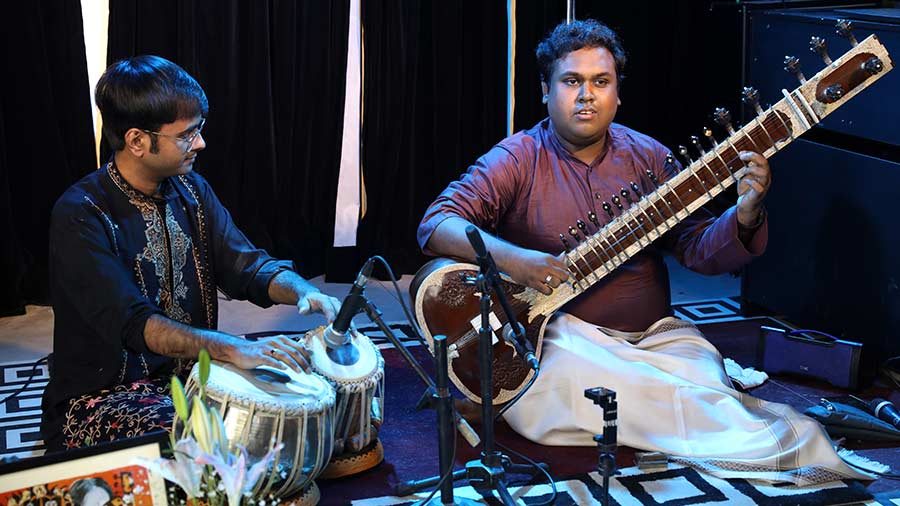
Kalyan Majumdar (right) performing with Sohon Ghosh
Harrison was also an ardent lover of Indian classical music. His close friendship with Pandit Ravi Shankar and their album Collaborations are testaments to that love.
To give the audience a sense of it, Kalyan Majumdar played raga Jhinjhoti and Rageshree, on the sitar, with Sohon Ghosh accompanying him on the tabla.
The audience were in for a surprise when flautist Soumya Mondal, with Tamal Mondal on the khanjira, played Bhatiyali, a form of Bengali folk music, leaving the audience wanting more.
‘Something’ for the end
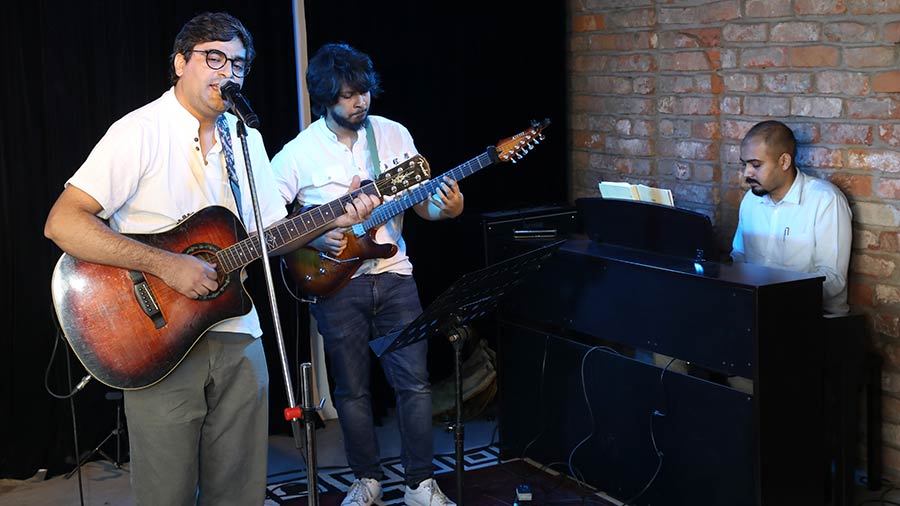
(L-R) Rachit Lakhmani, Tutul Mukherjee and Rajshekhar Banerjee
The best was perhaps saved for the last. When Rachit Lakhmani, Rajshekhar Banerjee and Tutul Mukherjee took to the stage to perform some of Harrison’s most famous songs – not just those that he created with the Beatles, but also as an independent artiste.
“This song was called the greatest love song of all time by Frank Sinatra,” said vocalist Rachit before performing Something, as those present crooned along. The songs included the likes of My Sweet Lord, While My Guitar Gently Weeps, Everybody's Trying to Be My Baby, Child of Nature, All Things Must Pass and Here Comes the Sun.
With pictures of Harrison adorning the walls of Skinny Mo’s, it was not difficult to understand why it was the allotted venue for the event. Speaking of why he chose Skinny Mo’s, Rajani said it “is a world-class music venue with great acoustics, which makes it conducive to serious music listening and intimate concerts. The way it is designed compels the audience to be attentive. Calcutta is lucky to have such a venue.”
